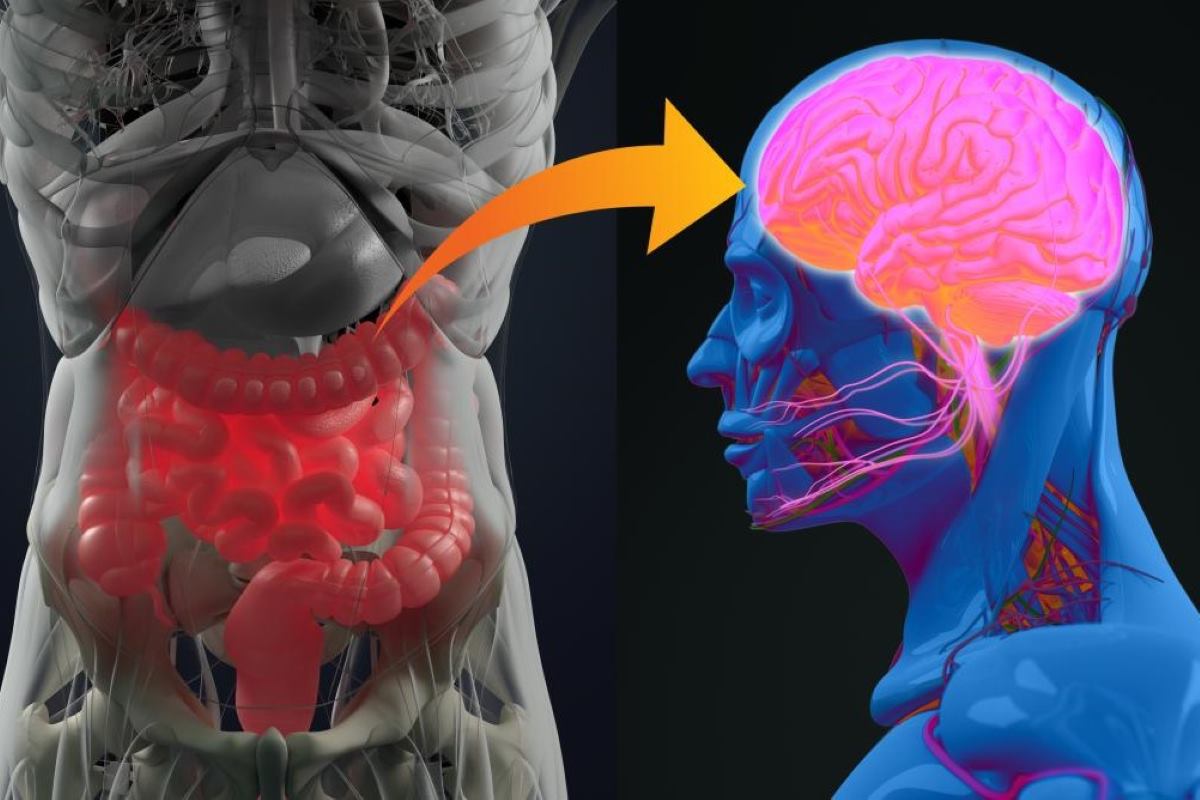People are often surprised when they learn about the close relationship between the gut microbiome and mental health. Have you ever found yourself in an emotional situation that made your stomach feel like it had butterflies fluttering around? It is also commonplace for individuals to experience what they call a hunch, or a ‘gut feeling.’
Now, science has proven that your gut bacteria and emotions have an inextricable relationship. So, that gut feeling is not just metaphysics; science now provides a good explanation. The gut has way more functions than just food digestion. Indeed, the gut also influences mood, cognition and emotions.
This article explores the gut-brain axis, explains what tickles it, and how to reinforce this cognitive highway for better mental health. Come on a journey to demystify microbiome-brain signalling.
What Is the Gut Microbiome?
The lingo we have used thus far may seem strange to you. We explain these terms before diving into the relationship between the gut microbiome and mental health.
The gut microbiome is a colony of bacteria, fungi and microorganisms, numbering in the trillions. Yes, there are that many microbes living in the gut of an average human.
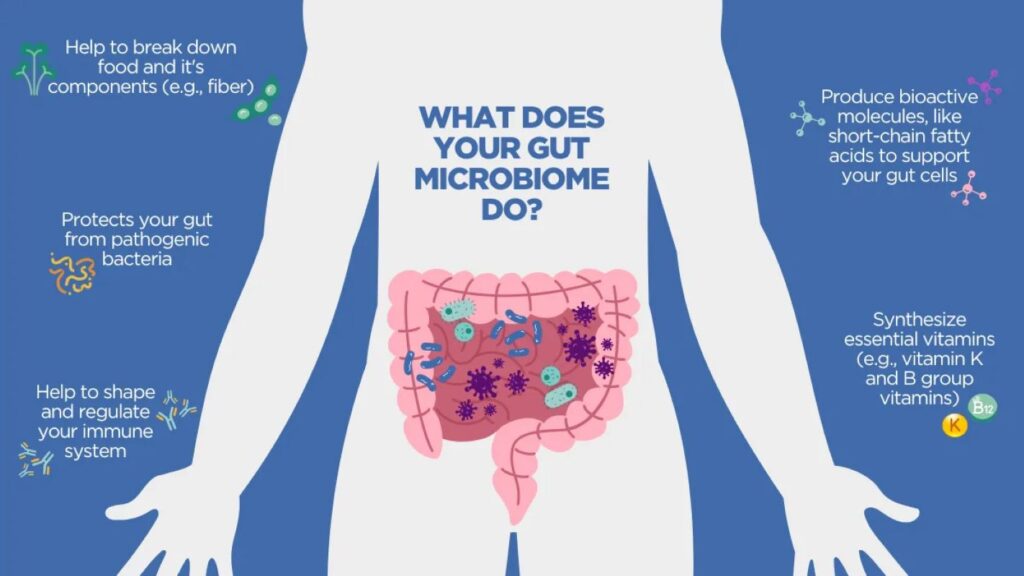
During digestion, food nutrients are absorbed into the bloodstream through the villi, located in the small intestine. However, the acids present in the stomach are unable to break down food components like fibre. Gut microbiota break down some of these knotty food components and make them fairly digestible.
Gut microbiome can also be territorial; it tends to fight against pathogenic microorganisms in the stomach. So, a thriving gut microbiome boosts your immunity. Another role of these beneficial microorganisms is microbiome brain signalling. What this means is that through multiple communication pathways, the two gut establishes a seamless communication channel with the brain, called the gut-brain axis.
ALSO READ: Understanding Food Allergies: The Science Explained
The Gut-Brain Axis Explained
The gut-brain axis makes the relationship between gut microbiome and mental health possible. This complex communication system between the gut and brain is a complex two-way channel consisting of three key players, namely:
- Gut microbiome
- Central Nervous System (CNS)
- Enteric Nervous System (ENS)
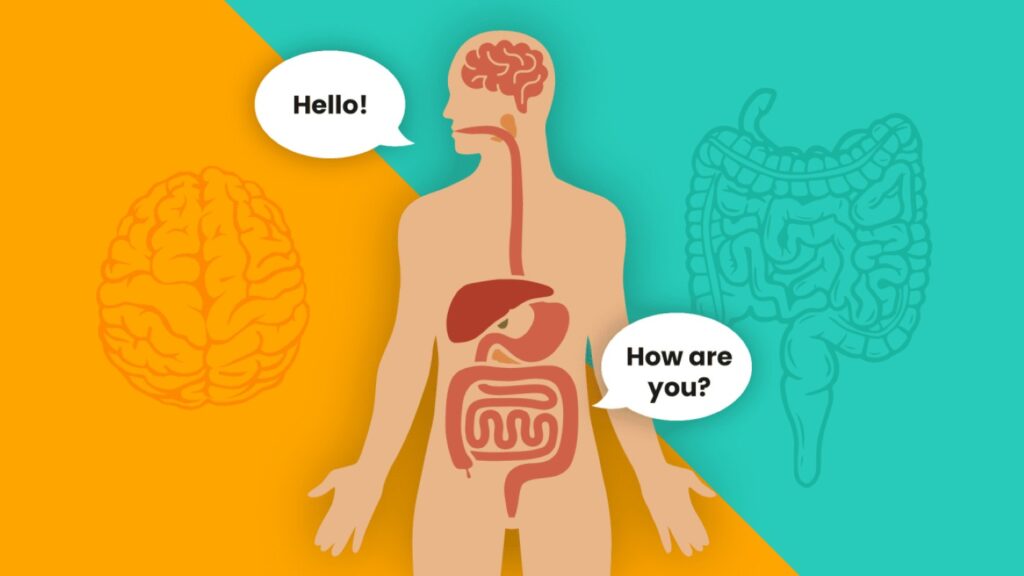
The vagus nerve is a mass of neurons that creates a direct communication pathway between the ENS and the brain. Interestingly, the gut-brain axis does not depend on its neural network for communication. It also triggers the secretion of neurotransmitters to send chemical signals between the two organs.
One of the important neurotransmitters produced by gut microbiota is called serotonin. Serotonin is a multifaceted hormone that influences digestion, circadian rhythm, mood and emotions, and sexual function.
How Microbes Influence Mood and Mental Health
Due to how much sway the gut microbiota has over our mental health, it has been dubbed the second brain. Multiple studies have substantiated this connection. Some of the studies suggest that serotonin production in the gut influences psychobiotics and depression. It is equally responsible for gut bacteria, mood swings and probiotic mood support. The gut microbiome may contribute to feelings of anxiety and depression and may influence cognitive function.
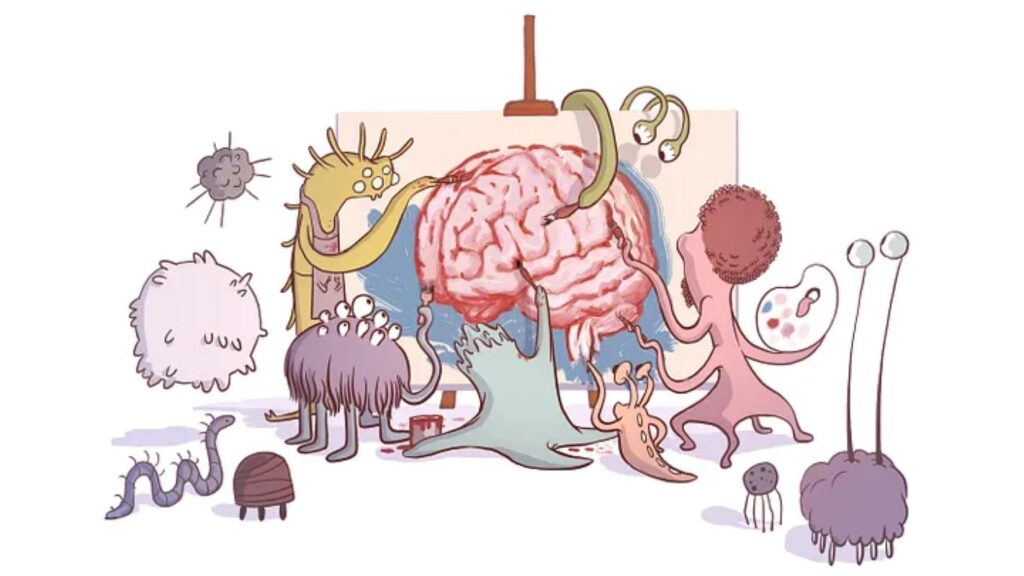
Harvard’s guide to the gut-brain connection explains how the relationship between the gut and brain can be a two-way street. Just as the gut microbiome can affect mood, the brain equally regulates the gut microbiome population. However, studies have found that imbalances in the gut’s microbial population, dysbiosis, can cause brain inflammation.
A recent survey by a team of Cambridge researchers adopted scientific methods to establish the existence of a cross-population relationship between gut microbiome and mental health. There’s also a load of NIH insights on gut microbes and mental health at the National Library of Medicine.
ALSO READ: The Truth About Superfoods: Science or Hype?
Foods That Feed a Healthy Microbiome
The beneficial microbe population that populates the gut thrive on a certain type of food. Consumers of the food items listed hereafter are likely to experience improvement in mood or cognitive functions.
The best categories of foods for gut health are:
- Foods containing polyphenols (apples, dark chocolates, onions, red cabbage, red wine, etc.)
- Probiotics (yogurt, sauerkraut, kimchi, kefir, kombucha, cheese, etc.)
- Prebiotics (cassava flakes, vegetables, whole grains, watermelon, garlic, asparagus, etc.)
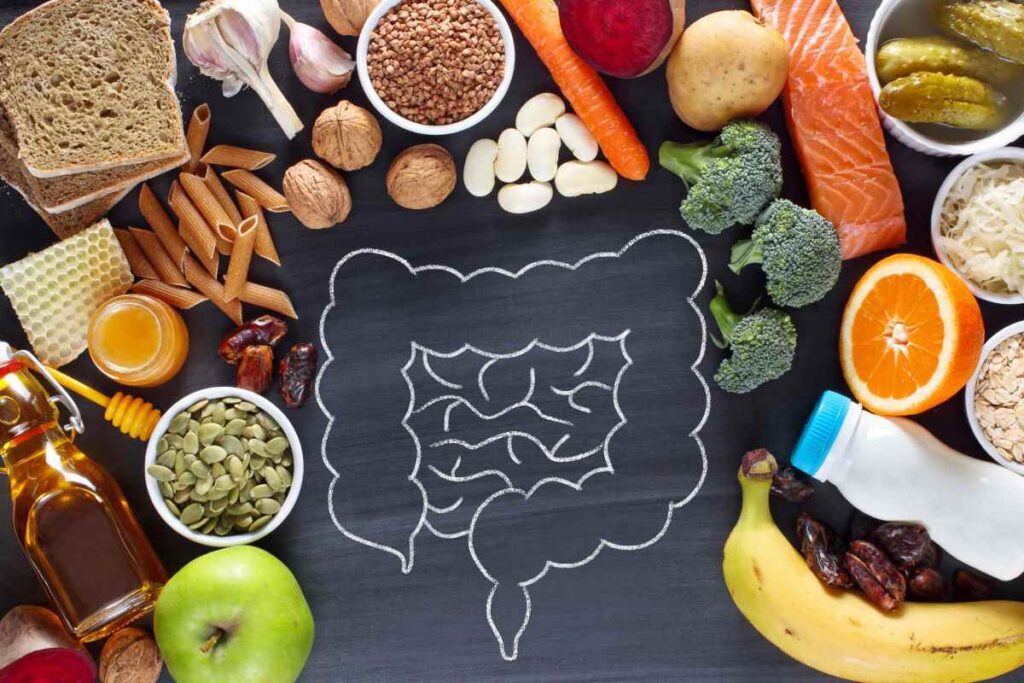
For the uninitiated, probiotics are foods that contain live microorganisms which improve gut health. They are mostly fermented food products.
Prebiotics, on the other hand, are food components that are usually difficult to digest. Consequently, prebiotics such as fibre encourage the growth of gut microbiota.
Polyphenols are a group of natural compounds, often found in plants, that act as antioxidants when ingested. These compounds have been touted as possessing anti-cancer properties.
Can Gut Health Be Used to Treat Mental Disorders?
The clear answer is ‘yes!’ Recent studies on psychobiotics and depression suggest it is possible to treat mental health issues targeting the gut-brain axis. Psychobiotics is an emerging field of study that involves assessing the response of patients who have been placed on special probiotic diets.
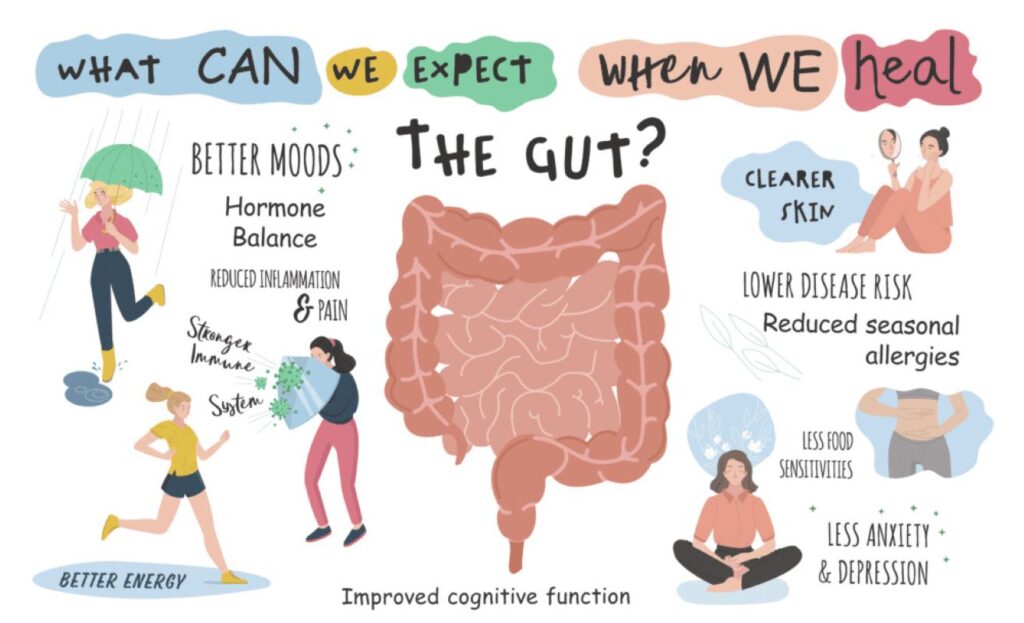
However, while the early trials of psychobiotic studies are yielding positive results, it is not yet viable as a replacement for therapy or medication. Interestingly, if nothing, all these studies have made us realize that sleep, stress, diet and overall wellbeing are all interrelated. So, next time you catch yourself feeling moody, it’s probably a great time to induce serotonin production in the gut.
We expect that with the new information supplied in this piece, you can tell how important it is to intentionally feed your microbiome.
Want top-notch brain function? Treat those fellas in your gut right.
ABOUT THE AUTHOR

Babatunde Olufemi is a food scientist, educator, and science-based food writer with academic and practical exposure to food processing, nutrition, food safety, and the global food industry. Through Quill of Grubs, he breaks down complex food science topics into clear, accessible explanations for everyday readers, students, and professionals.







